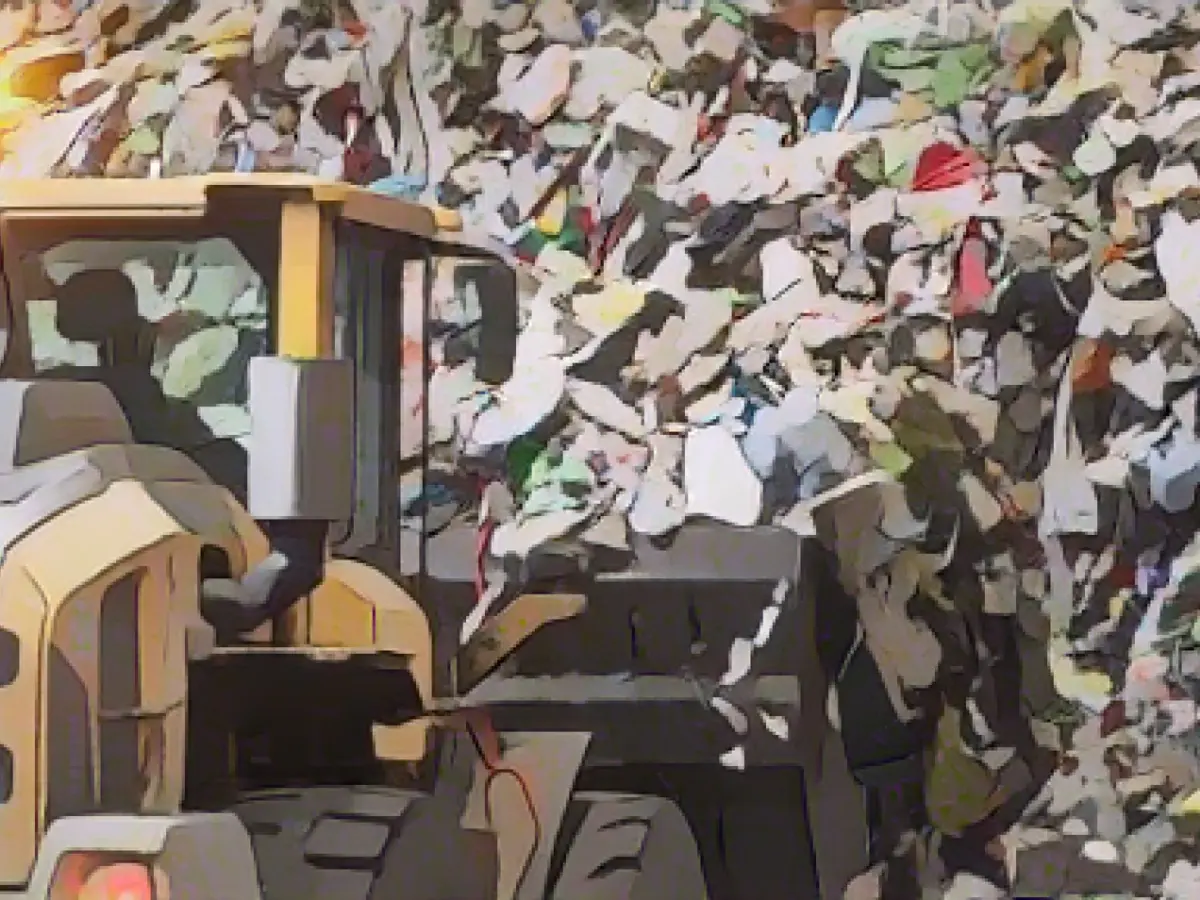Consumers - EU countries want to reduce packaging waste
According to the member states, packaging waste in the EU is to be significantly reduced in the coming years - by at least 15 percent by 2040 compared to 2018. The environment ministers of the member states agreed in Brussels that all packaging placed on the market must be recyclable by 2030, according to a statement.
The new rules would reduce unnecessary packaging by obliging manufacturers and importers to minimize the weight and volume of packaging, it said. Protected packaging designs are exempt from this.
As soon as the packaging becomes waste, it should be collected, sorted and recycled according to the highest possible standards, the countries said. In general, the new rules should apply to all packaging, regardless of the material, and to all packaging waste, regardless of its origin - including industry, retail and households. It should also be clearly labeled what the packaging is made of and how it should be recycled or disposed of.
Reuse and compost
The ministers also agreed on a minimum number of cycles for reusable packaging. The countries also want tea bags and adhesive labels on fruit and vegetables to be compostable in future. States could also make it mandatory for other packaging such as coffee capsules or lightweight plastic carrier bags to be compostable.
The countries must now negotiate with the European Parliament, only then can the new regulations come into force. The basis for the agreement now reached by the countries is a proposal from the EU Commission from
The amount of packaging waste is growing faster than recycling
Although recycling rates have increased in the EU, the amount of packaging waste is reportedly growing faster than recycling. Over the past ten years, the amount of packaging waste has increased by almost 25 percent. It is expected to increase by a further 19 percent by 2030 if no measures are taken. Plastic packaging waste is expected to increase by 46 percent by 2030.
The production of packaging and the management of packaging waste, with a total turnover of 370 billion euros, is an economically important sector in the EU, it said.
According to the latest figures from the EU statistics authority Eurostat, there was 188.7 kilograms of packaging waste per inhabitant in the EU in 2021. The figures vary widely within the EU - while Croatia had around 74 kilograms of packaging waste per capita, Ireland had around 246 kilograms. In Germany, according to the data, it was around 237 kilograms. There were temporary lockdowns in some countries in the second coronavirus year of 2021.
Read also:
- Why there is still no EU funding for green Saar steel
- 3 billion Saar Fund is unconstitutional
- Abrupt end to e-car subsidies
- The chemical industry has little confidence
- The EU member states aim to reduce packaging waste by at least 15% by 2040 compared to 2018, as stated in consensus reached in Brussels.
- According to the new rules, all packaging placed on the market in the EU must be recyclable by 2030, excluding protected packaging designs.
- In order to minimize packaging waste, manufacturers and importers will be obligated to reduce the weight and volume of packaging, according to the environmental policy.
- The collection, sorting, and recycling of packaging waste should follow the highest possible standards, focusing on all types of packaging waste, regardless of its origin or material.
- EU consumers are urged to dispose of waste packaging properly, considering the clearly labeled instructions on the materials and appropriate recycling procedures.
Source: www.stern.de








